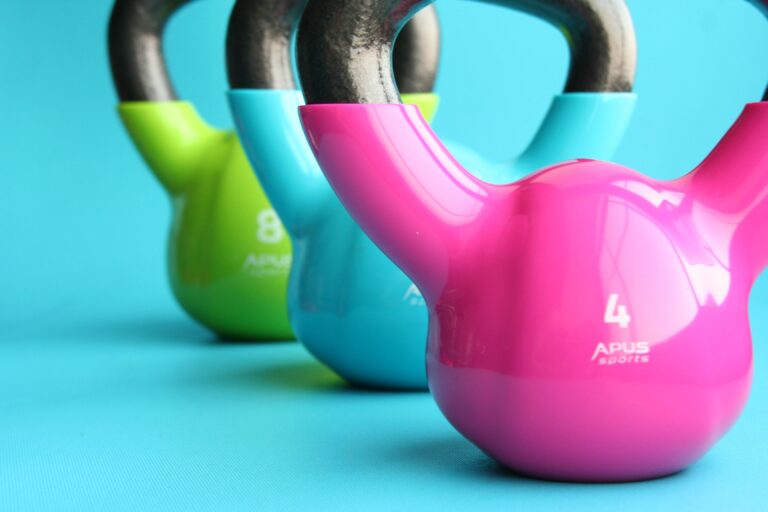5 Weight Loss Friendly Foods to Add to Your Daily Routine
Outlines
I. Introduction
A. Importance of incorporating weight loss-friendly foods
II. Avocado
A. Rich in healthy fats and fiber
B. Promotes satiety and aids in weight management
III. Leafy Greens
A. Low in calories and high in nutrients
B. Provide volume and essential vitamins
IV. Lean Protein Sources
A. Supports muscle growth and boosts metabolism
B. Enhances feelings of fullness and aids in weight loss
V. Berries
A. High in antioxidants and fiber
B. Helps control appetite and regulates blood sugar
VI. Whole Grains
A. Rich in fiber and nutrients
B. Sustains energy levels and promotes a feeling of fullness
VII. Conclusion
A. Recap of weight loss-friendly foods and their benefits
B. Encouragement for incorporating these foods into daily routines
I. Introduction:
Losing weight often involves making significant changes to your diet, but it doesn’t have to mean depriving yourself of flavorful foods. Incorporating weight loss-friendly options into your daily routine can make a considerable difference. Here are five nutritious and satisfying foods that can support your weight loss journey while offering a range of health benefits.
A. Importance of incorporating weight loss-friendly foods
Incorporating weight loss-friendly foods into your diet is crucial for several reasons. Firstly, these foods are typically nutrient-dense, providing essential vitamins, minerals, and antioxidants that support overall health. Secondly, they tend to be lower in calories while being high in fiber and protein, which can help keep you full and satisfied, reducing the likelihood of overeating. Additionally, these foods often have properties that boost metabolism or aid in fat burning, further assisting in weight loss efforts. By making these foods a regular part of your diet, you not only promote weight management but also enhance your overall well-being.
II. Avocado
Avocado is a nutrient-dense fruit that’s highly regarded for its potential benefits in weight management. Despite being rich in healthy fats, mainly monounsaturated fats, avocados can aid in weight loss. These fats contribute to a feeling of satiety, helping to control hunger and reduce the likelihood of overeating. Furthermore, avocados are packed with fiber, which not only supports digestion but also helps regulate appetite by keeping you fuller for longer periods. The combination of healthy fats and fiber in avocados makes them a valuable addition to a weight loss-friendly diet when consumed in moderation. Additionally, they offer an array of vitamins, minerals, and antioxidants that contribute to overall health.
A. Rich in healthy fats and fiber
Avocados are a notable source of healthy fats, primarily monounsaturated fats, which are beneficial for heart health. These fats contribute to a feeling of fullness and can help control appetite, supporting weight management efforts. Additionally, avocados are abundant in dietary fiber, with a high fiber content that aids in digestion and promotes a healthy gut. This combination of healthy fats and fiber not only supports weight loss but also provides various health benefits, including improved cholesterol levels and better blood sugar regulation.
B. Promotes satiety and aids in weight management
Avocados play a significant role in promoting satiety and aiding in weight management due to their composition. Their rich content of healthy fats and fiber works synergistically to help individuals feel fuller for longer periods after consumption. These healthy fats contribute to satiety by slowing down digestion and the release of sugars into the bloodstream, preventing sudden spikes in blood sugar levels that can lead to cravings and overeating. The fiber content adds bulk to meals, enhancing the feeling of fullness and reducing the likelihood of excessive calorie intake, thus supporting weight loss goals. Incorporating avocados into a balanced diet can contribute to better appetite control and improved weight management outcomes.
III. Leafy Greens
Leafy greens are an essential component of a weight loss-friendly diet due to their low-calorie content and high nutrient density. These greens, such as spinach, kale, arugula, and Swiss chard, are packed with vitamins, minerals, and antioxidants while being extremely low in calories. Their high fiber content aids in digestion and promotes a feeling of fullness, helping to curb cravings and reduce overall calorie intake. Additionally, leafy greens are rich in various vitamins, such as vitamin A, vitamin C, and vitamin K, as well as minerals like iron and calcium, which are essential for overall health and well-being. Incorporating leafy greens into meals not only supports weight loss efforts but also provides numerous health benefits.
A. Low in calories and high in nutrients
Leafy greens are incredibly beneficial for weight loss due to their low-calorie and high-nutrient profile. These vegetables offer an abundance of vitamins, minerals, and antioxidants while containing minimal calories. Their nutrient density means you can consume generous portions without significantly increasing your calorie intake. This characteristic is advantageous for weight loss efforts as it allows you to fill up on essential nutrients without consuming excessive calories. Incorporating leafy greens into your diet not only supports overall health but also aids in weight management by providing vital nutrients while keeping calorie intake in check.
B. Provide volume and essential vitamins
Leafy greens are exceptional for weight management as they provide volume to meals without significantly contributing to calorie intake. Their high water and fiber content add bulk to dishes, enhancing satiety and helping you feel full on fewer calories. Moreover, these greens are rich in essential vitamins such as vitamin A, vitamin C, and vitamin K, which play crucial roles in various bodily functions. Vitamin A supports vision and immune health, while vitamin C acts as an antioxidant, supporting the immune system and skin health. Vitamin K is essential for blood clotting and bone health. Incorporating leafy greens into your diet not only helps manage weight by providing volume but also ensures you receive a wide array of essential vitamins for overall health and well-being.
IV. Lean Protein Sources
Lean protein sources are fundamental for weight loss due to their ability to support satiety, boost metabolism, and aid in muscle maintenance. Foods like chicken breast, turkey, fish, tofu, legumes, and low-fat dairy products are rich in protein and relatively low in saturated fats. Protein plays a crucial role in weight management by increasing feelings of fullness, which can help reduce overall calorie intake. Additionally, protein requires more energy to digest than fats or carbohydrates, contributing to a temporary increase in metabolism known as the thermic effect of food, which can support weight loss efforts. Moreover, adequate protein intake is vital for preserving lean muscle mass, especially during calorie deficits typically associated with weight loss. Incorporating lean protein sources into meals can enhance satiety, support metabolism, and aid in maintaining muscle mass during weight loss endeavors.
A. Supports muscle growth and boosts metabolism
Lean protein sources play a pivotal role in supporting muscle growth and boosting metabolism, crucial elements in successful weight loss journeys. Proteins are the building blocks of muscle tissue, and consuming an adequate amount of protein helps repair and rebuild muscles after physical activity. Moreover, protein has a high thermic effect, meaning the body expends more energy (calories) to digest and metabolize protein compared to fats or carbohydrates. This increased metabolic rate can contribute to burning more calories throughout the day, supporting weight loss efforts. Additionally, preserving or increasing muscle mass through adequate protein intake can help maintain a higher resting metabolic rate, which further aids in managing weight by burning more calories, even during periods of rest. Therefore, incorporating lean protein sources into your diet not only supports muscle growth but also contributes to a more efficient metabolism, crucial for successful weight loss and weight management.
B. Enhances feelings of fullness and aids in weight loss
Lean protein sources are known for their ability to enhance feelings of fullness and aid in weight loss. Protein has a high satiety effect, meaning it can help you feel fuller for longer periods compared to fats or carbohydrates. When included in meals or snacks, protein can reduce hunger and cravings, ultimately leading to a decrease in overall calorie intake. This reduction in calorie consumption can support weight loss efforts by creating a calorie deficit, which is necessary for shedding excess weight. Additionally, protein slows down the digestion process, helping to stabilize blood sugar levels and prevent sudden spikes and crashes that might trigger cravings for unhealthy foods. As a result, incorporating lean protein sources into your diet can be an effective strategy to promote feelings of fullness, reduce calorie intake, and facilitate weight loss.
V. Berries
Berries are exceptional additions to a weight loss-friendly diet due to their low calorie content, high fiber content, and abundance of antioxidants. These fruits, including strawberries, blueberries, raspberries, and blackberries, are packed with vitamins, minerals, and antioxidants while being relatively low in calories and sugar compared to many other fruits. Their high fiber content aids in digestion, promotes satiety, and helps regulate blood sugar levels, reducing the likelihood of spikes and crashes that can lead to cravings. Moreover, berries are rich in antioxidants like anthocyanins and flavonoids, which have been linked to various health benefits, including potential support for weight loss by aiding metabolism and reducing inflammation. Incorporating berries into your diet provides a flavorful way to satisfy sweet cravings while supporting weight loss efforts and offering numerous health benefits.
A. High in antioxidants and fiber
Berries are recognized for their exceptional content of antioxidants and fiber, making them invaluable for those aiming for weight loss. These fruits boast high levels of antioxidants such as anthocyanins, flavonoids, and vitamin C, which combat oxidative stress, reduce inflammation, and potentially support metabolism. Additionally, berries are packed with dietary fiber, promoting digestive health and contributing to a feeling of fullness. The fiber content aids in regulating blood sugar levels, preventing rapid spikes and crashes that may trigger cravings for unhealthy foods. As a result, the combination of antioxidants and fiber in berries not only supports overall health but also aids in weight loss by promoting satiety and regulating metabolic processes. Incorporating these nutrient-rich fruits into your daily routine can be an excellent strategy for those seeking to manage their weight effectively.
B. Helps control appetite and regulates blood sugar
Berries play a crucial role in weight management by aiding in appetite control and regulating blood sugar levels. Their high fiber content contributes to a feeling of fullness, which can help control appetite and reduce the likelihood of overeating. This fiber also slows down the digestion of carbohydrates, leading to a more gradual release of sugars into the bloodstream and helping to stabilize blood sugar levels. By preventing rapid spikes and subsequent crashes in blood sugar, berries assist in curbing cravings for sugary or high-calorie foods. Their ability to regulate appetite and blood sugar makes berries a valuable addition to a weight loss-friendly diet, offering a sweet and nutritious option that supports better control over food intake and helps maintain steady energy levels throughout the day.
VI. Whole Grains
Whole grains are essential components of a weight loss-friendly diet due to their rich nutrient profile and beneficial effects on satiety and metabolism. Examples of whole grains include oats, quinoa, brown rice, whole wheat, barley, and buckwheat. Unlike refined grains, whole grains retain their fiber-rich bran and nutrient-packed germ, offering essential vitamins, minerals, and antioxidants. Their high fiber content aids digestion, promotes a feeling of fullness, and helps regulate blood sugar levels, reducing the likelihood of sudden spikes and crashes in energy. Furthermore, whole grains provide a sustained release of energy, supporting metabolic function and helping to maintain energy levels throughout the day. Incorporating whole grains into your diet not only supports weight loss but also offers various health benefits, making them a valuable addition to a balanced and nutritious eating plan.
A. Rich in fiber and nutrients
Whole grains are prized for their richness in both fiber and essential nutrients, making them invaluable for weight management. The fiber content in whole grains, such as oats, brown rice, and quinoa, contributes significantly to their weight loss benefits. This fiber aids in digestion, promotes a feeling of fullness, and helps control appetite, reducing the likelihood of overeating. Moreover, whole grains are packed with nutrients like B vitamins (such as thiamine, riboflavin, niacin, and folate), minerals (such as magnesium, iron, and zinc), and antioxidants. These nutrients are essential for various bodily functions, including metabolism, energy production, and overall well-being. By providing a substantial amount of fiber along with a wide array of essential nutrients, whole grains serve as an excellent choice to support weight loss while ensuring a nutrient-rich diet. Incorporating whole grains into meals can be a beneficial strategy for those aiming to manage their weight and improve their overall health.
B. Sustains energy levels and promotes a feeling of fullness
Whole grains are notable for their ability to sustain energy levels and promote a lasting feeling of fullness. Due to their complex carbohydrates, whole grains provide a steady and prolonged release of energy, supporting metabolic function and helping maintain consistent energy throughout the day. This sustained energy prevents energy crashes, reducing the likelihood of reaching for unhealthy, high-calorie snacks to combat fatigue. Moreover, the high fiber content in whole grains contributes to a prolonged feeling of fullness. Fiber absorbs water and expands in the stomach, creating a sense of satiety that can help control appetite and reduce overall calorie intake. Incorporating whole grains into your diet can thus aid in sustaining energy levels and managing hunger, making them a valuable component of a weight loss-friendly eating plan.
VII. Conclusion
Incorporating weight loss-friendly foods into your daily routine offers numerous benefits beyond shedding unwanted pounds. The inclusion of nutrient-dense options like avocados, leafy greens, lean protein sources, berries, and whole grains not only supports weight management but also enhances overall health. These foods, rich in fiber, antioxidants, essential vitamins, and minerals, aid in controlling appetite, regulating blood sugar levels, sustaining energy, and promoting feelings of fullness.
Avocados’ healthy fats and fiber, leafy greens’ low-calorie, high-nutrient profile, lean protein sources’ muscle-supporting benefits, berries’ antioxidant and blood sugar-regulating properties, and whole grains’ fiber-rich, energy-sustaining qualities collectively contribute to a balanced diet conducive to weight loss and improved well-being.
By incorporating these weight loss-friendly foods into your daily meals, you not only facilitate your weight loss journey but also nurture your body with essential nutrients, promoting a healthier lifestyle overall. Making these foods a consistent part of your diet can pave the way for sustainable weight management and better health in the long run.
A. Recap of weight loss-friendly foods and their benefits
Certainly! Here’s a recap of weight loss-friendly foods and their
- Avocado: Rich in healthy fats and fiber, avocados aid in promoting satiety and regulating appetite, supporting weight management while providing essential nutrients and antioxidants.
- Leafy Greens: Low in calories and high in nutrients, leafy greens like spinach and kale offer vitamins, minerals, and antioxidants, supporting weight loss by providing volume to meals and essential vitamins for overall health.
- Lean Protein Sources: These foods support muscle growth, boost metabolism, and aid in weight loss by increasing feelings of fullness, contributing to higher calorie expenditure during digestion, and preserving lean muscle mass.
- Berries: High in antioxidants and fiber, berries help control appetite, regulate blood sugar levels, and provide essential nutrients, making them an excellent choice for weight loss while offering numerous health benefits.
- Whole Grains: Rich in fiber and nutrients, whole grains sustain energy levels, promote fullness, and provide essential vitamins and minerals, contributing to weight management and overall health.
Incorporating these weight loss-friendly foods into your diet can support your weight management goals while ensuring a nutrient-rich and balanced eating pattern.
B. Encouragement for incorporating these foods into daily routines
Incorporating weight loss-friendly foods into your daily routine isn’t just about shedding pounds; it’s a journey toward a healthier and more fulfilling lifestyle. Embracing these foods offers a myriad of benefits beyond weight management—enhanced energy levels, improved digestion, better mood, and overall well-being.
Remember, small changes can yield significant results. Start by gradually introducing these foods into your meals. Try adding a handful of berries to your breakfast, incorporating leafy greens into salads or smoothies, or swapping refined grains for whole grains in your meals. Experiment with lean protein sources like chicken, fish, or tofu in various recipes. Avocados can serve as a tasty addition to salads or as a spread on whole-grain toast.
Embrace variety and creativity in your meals while incorporating these weight loss-friendly foods. Not only will this diversify your palate, but it’ll also make the journey more enjoyable and sustainable. Celebrate each step forward, no matter how small, and acknowledge the positive changes these foods bring to your health and well-being.
Stay consistent and patient with yourself. Adopting a balanced diet doesn’t mean deprivation—it’s about nourishing your body with foods that support your goals while enjoying the journey towards a healthier you. Every positive choice you make is a step toward achieving your weight loss and wellness objectives. Trust the process, stay committed, and savor the rewards of a healthier lifestyle.







